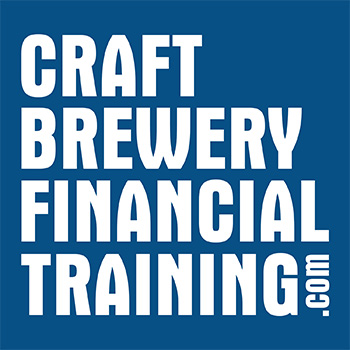Payroll and benefits are among the largest expense items on the income statement. After cost of goods sold, compensation is likely the single biggest outlay of cash in your brewery.
In this article, we’ll look at the 10 Commandments of Compensation for your sales team. The top 10 things you must do to get the most from your payroll dollar investment.
The 10 Commandments of Compensation:
- Remember the First Rule of compensation
- Key questions to ask before building the comp plan
- Avoid these common mistakes
- Be intentional with your model
- Use Incentives, but use them wisely
- Make the sales person keep score
- Align the comp plan with your company goals first
- Don’t forget coaching, managing and leading
- Communicate and educate about how the plan works
- Communicate and educate…again
#1 The First Rule of Compensation
People want a market rate compensation plus an opportunity to make more.
They want safety and security now, and the chance to earn additional if they go above and beyond.
If you don’t take anything else away from this newsletter please remember these points. In my experience sitting with hundreds of sales people over the years I have found these statements to hold true.
We may think of the sales person as the sales animal. The animal may say: “Pay me commission from dollar one, turn me loose and watch what I can do.”
It sounds great, but in my experience people want a market rate, plus an opportunity to make more.
Mostly, people want to know that they can pay their bills. The mortgage, the cable bill, their kids’ tuition. We sometimes forget that the sales animals – the sales people – are people too.
#2 Key Questions to Ask Before Building Your Comp Plan
When you put together your compensation plan, remember to ask the basic questions you learned in third grade English class: Who, What, Where, Why, When & How
Who…Who is the comp plan for? Route Sales, team leaders, sales manager, or all of the above?
Are you changing just the route sales person? How does that affect the team leader or manager? Should you update their comp plan to stay in line with the route sales? Alignment is a big key.
What do you want to accomplish or achieve with your comp plan? What does a successful comp plan look like?
This is a fundamental question that is often answered with – “I just want them to sell more.” That’s fair, but make sure that is really what ‘success’ looks like.
Where…all territories, markets, teams? If you cover multiple states, markets or territories, will the comp plan change include everyone, or just a portion?
I’ve built plans rolled them out, and then realized we forgot about a whole team that was in a smaller territory. Sounds ridiculous, but asking this basic question will help to avoid silly oversights like this.
Why… Why are you changing the comp plan? Maybe the current plan is too complicated, or isn’t motivating the sales team. Maybe sales are soft, and you need to do something to shake things up.
Clearly answer the question Why. This will help when you communicate the changes to your team. Moreover, it clarifies the Why for your ownership and management team – everyone should be talking about the same message when explaining a compensation plan.
When + How...When and How come down to having a plan and enough time to execute it. Many times I have rolled out a comp plan too soon. Communication was bad, execution was bad. Epic fail.
Ask When + How in your planning process so you build in enough time and have a good game plan to roll it out.
#3 Avoid These Comp Plan Mistakes
The three big mistakes I have seen with compensation plans are:
- Pay that confuses
- Pay that infuriates
- Pay that surprises
Pay that Confuses…Confusion costs money. If your sales team doesn’t understand the compensation plan – if they are confused – it will cost you (and them) money.
Keep your compensation plan as simple as possible to avoid pay that confuses.
Pay that Infuriates…Avoid a compensation plan that pisses off your sales force. I’ve done this a few times. Didn’t intend to do this, but because I missed a few key steps it happened.
Design the compensation plan, share it with key sales people in advance. Get their input, and iron out any irritation before presenting the plan to the masses.
Pay that Surprises…Don’t play hide and seek with the compensation reward. If there’s a bonus or incentive at stake, tell the sales person what it is and how to win it.
I’ve worked with managers that liked to play hide and seek. They thought that the element of surprise would motivate people. Perhaps they thought this was like hitting a piñata and the sales person would be more excited because they didn’t know what would fall out.
In my experience, this just doesn’t work.The comp plan isn’t like a 6-year old’s birthday party, it’s more like a paycheck. Tell the salesperson what the reward is and how to win it. Don’t play hide and seek with someone’s pay.
#4 Be Intentional with Comp Planning
Be intentional with your compensation model and decide if you are paying to follow a process, create an outcome or both.
Paying for a process means paying people to do things in a certain way, to follow the script or checklist. Process means taking specific action The action should lead to a result or outcome in time, but first you’re only focused on paying to follow a specific process.
For example, many breweries have a formal Sales Process:
- Greet the customer
- Thank you for your business
- Introduce new items…
- …and so on
Designing a comp plan to pay for process might involve an incentive to reward the sales person for following the sales process. The process should be followed in it’s entirety, every single time, every single sales call
Paying people to follow a process is paying them to DO certain things in a certain way. Paying for an outcome means paying people to achieve a result.
The desired result may be to Increase sales, get new placements or displays. For example, open up 10 new draft accounts, get additional facings at targeted off-premise accounts and so on.
Paying for an outcome, or to achieve results puts the responsibility on the sales person to figure out exactly how to do it. You give them the outcome you want, they figure out the best process to get it done.
A blend of paying for process and outcome may achieve the best results.
Set up a Pay for Performance to do things a certain way – for example, to follow the Sales Process. Set up a Commission structure to pay for achieving the outcome – for example, exceeding the sales goal
Bottom line: be intentional with your plan and determine whether you want to pay for following a process or achieving an outcome or some blend of the two.
Wrap Up + Action Items
In a future article, we’ll hit the rest of the 10 Commandments. For now, review the ideas presented here and see if there’s anything you can apply in your beer business.
Payroll and benefits are a huge expense for your brewery. The 10 Commandments of Comp can help you get the best return on this investment.





